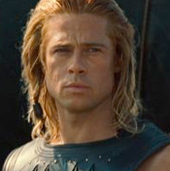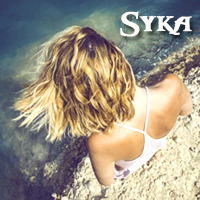I'm going to try not to ramble too much here, though it's surely inevitable...
I don't actually see that Grassland Sign is quite like any of the examples posted. The first two strike me as both too stylized and too... small. Simple? Maybe what I'm looking for is formal. Already the inclarity creeps in! The third is probably closer in essence, but... just isn't an analogy I'd choose, I guess.
I think the first key point in the lore is that Grassland Sign doesn't stand alone; it's a complement to spoken Pavi. Its normal usage strikes me more as accentuation, emphasis, quick messages; simpler and stronger and... let's say more basic than spoken words. Any verbal language is rife with synonyms, not-quite-synonyms with subtle differences in connotation, homonyms, layered meanings, verb tenses, word genders -- complexity, to put it concisely. Not to say Grassland Sign itself isn't and shouldn't be complex, but I think its role is to underscore the most important points, to cut to the chase elaborated upon by all those syllables.
Of course, that makes a strong grasp of Sign all the more important when, say, haggling, to tell that vendor what you really think of their shoddy overpriced junk.  But I digress. But I digress.
If I look at the signs Khida has been exposed to in threads, whether addressed directly to her or used to others around her, they tend to the simple and straightforward. Apology, friend, confusion, greeting, wait, and so on. Granted, some of that can be ascribed to the relative lack of development on Grassland Sign, and some to other characters' recognition of her as a nonnative, but I think it also captures the contrast between signed and spoken Pavi. All those extra bits get dropped and the heart of the message shines through.
The other usage of it that I imagine is adding shading and nuance to spoken words. I think Banickle's last post starts to get at that. But I imagine that being done with a comparatively simple core vocabulary rather than an elaborate codex of signs; in that respect, I agree more with the heartward/opposite hand example described. A spoken language might have tens to hundreds of thousands of words; I imagine Sign might have in the hundreds to low thousands at most, with interpretation often more contextual than absolute. In that vein, I also imagine it as being very idiosyncratic in some respects -- with different 'subaccents' informed by one's posture, the manner a gesture is formed, speed, flow vs. jerkiness, etc. Also subject to people making up their own signs and personal jokes, as people do, even more so than with spoken language. Perhaps each Clan has its own distinct flavor. I digress again.
Sadly, I don't have a character who's even remotely fluent in it (yet)! So I can't highlight any of my own usages. I don't have any handy RL exemplars either. In external fiction -- which I'm going to bring in for sake of inspiration and example -- I've seen only one instance of a complementary spoken-and-sign language pair that I thought was done really well, and also used as extensively as Grassland Sign sounds like it should be: pilots' hand-talk in the Liaden Universe novels, particularly the Theo Waitley sequence. Here are a few examples from Saltation that I think capture how I would see Sign fitting in around Pavi's everyday use better than any description I could ever write:
"If you find you're falling behind, speak up." Here she stopped in midstride, appeared to look at all the students at once and emphatically finger-yelled GET HELP. Her hands fluttered into a more subtle motion... she might, Theo thought, have been reminding herself of where she was in her presentation — point six.
"Do you have that analysis?" Peltzer's voice was dulcet, while his fingers said soon soon quick soon.
[Rig:] "New contract, huh? You got yourself a Liaden writing those things now?" Mayko scolded Rig with severe fingers: serious talk no joke read close consider.
The hand-signs were even faster than they had been when she walked in, and now punctuated in a way only hand-talk allowed. Sneak. Steal. Hide. Wrong. My ship. My students. Know better.
Theo stared at him, hard. "This is true? All of it?" Her hand-signs alternated between full power and one hundred percent.
One of the things about the way hand-talk is portrayed throughout these books is that it's used as naturally, and sometimes as subconsciously, as breathing; sometimes more so than spoken language. At times it weaves a sort of second narrative alongside spoken words; other times it's used as emphasis and punctuation. Sometimes it's used without conscious direction, expressing the gist of the character's thoughts -- speaking "aloud", musing "aloud", in a sort of brain-to-hand-sans-filter way. After all, we think less consciously about how we stand/move than about what we give voice to.
Anyway, lots of words on screen now; I'll stop.  Hopefully some of them approach coherence! Hopefully some of them approach coherence! |




































 But I digress.
But I digress. Hopefully some of them approach coherence!
Hopefully some of them approach coherence!